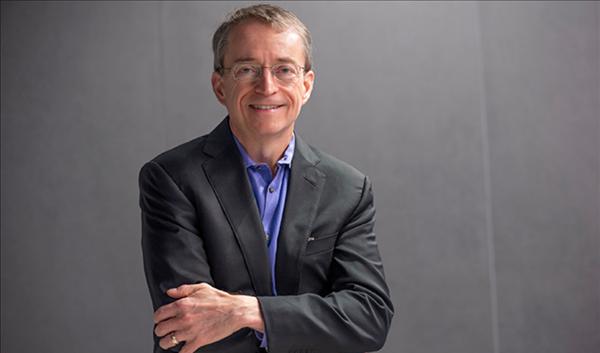Abstract: On December 14, Intel CEO Pat Gelsinger arrived at Taiwan Taoyuan International Airport by private plane at 10:45 p.m. yesterday, and after disembarking, he adopted the mode of epidemic prevention project to enter the country, and is expected to go to the top management of TSMC. Subsequently, Kissinger will leave Taiwan for Malaysia on the morning of the 15th to inspect Intel's local packaging and testing plant operations and explain the latest investment plan.
December 14 news, Intel CEO Pat Gelsinger arrived at Taiwan Taoyuan International Airport at 10:45 p.m. yesterday, and after disembarking, he adopted the mode of epidemic prevention project to enter, and is expected to go to TSMC executives. Subsequently, Kissinger will leave Taiwan for Malaysia on the morning of the 15th to inspect Intel's local packaging and testing plant operations and explain the latest investment plan.

Although Intel and TSMC did not respond to this matter, according to outside analysis, Kissinger is ready to meet with TSMC executives in order to grab TSMC's 3nm production capacity. However, some analysts hold the opposite view, believing that TSMC's 3nm orders are full, it is difficult to distribute to Intel, and Intel does not have a product line to use 3nm, this time Kissinger came to Taiwan, on behalf of the U.S. government or Intel to interfere with TSMC's business strategy Is more likely.
In addition, the reason why Kissinger came to Taiwan this time is that Kissinger just said to the outside world not long ago that Taiwan is not a stable place, and TSMC has geopolitical risks, and the US government should give priority to investing in local chip manufacturers. At that time, TSMC founder Zhang Zhongmou also replied, "Intel stipulates that he will retire at the age of 65, and Kissinger is already 60 years old, and it is difficult to bring Intel back to the peak during the rest of his term." ”
It is worth noting that for this visit to Taiwan, Kissinger has explained it through a short video and emphasized Intel's close cooperation with TSMC. The following is the full text of Kissinger's video speech:
Hello everyone, I'm Pat Gelsinger and I'm getting ready to take a flight to Taiwan. I'm excited to be back in Taiwan, back to a place I've visited many times, only to be affected by the pandemic, and I've only had the opportunity to come back here until now after I became CEO of Intel. Because we attach great importance to the safety norms and measures related to epidemic prevention, I can only meet with a few people in Taiwan this time, which is why I first recorded this short video to share my thoughts with you.
As you've heard me share, COVID-19 has accelerated the process of digital transformation, spurring rapid innovation and unprecedented patterns of work, learning and interaction. This shift to demand for semiconductors has led to explosive growth, and semiconductors are even more important to today's economic growth.
At the heart of the digital transformation is Taiwan, which has a complete, abundant and vibrant ecosystem that intertwines the energy of technology, culture, business and competition to become one of the key hubs of our industry. In the past few decades, Taiwan has created amazing and brilliant results!
Taiwan is also home to more than 1,000 of Intel's talented employees who have worked closely with our customers and partners in Taiwan for the past 36 years to deliver leading-edge products.
Among these partnerships, I would like to mention our long-standing and far-reaching relationship with TSMC. In many ways, TSMC helped Intel corporations and the industry unlock the possibilities of chips, creating products that were never seen before. The achievements of TSMC are really remarkable.
Now, semiconductors are getting more attention than ever. Without semiconductors, everything would stop working. We're all working to address chip shortages, which highlights not only the importance of semiconductors, but also the importance of supply chains. The semiconductor industry needs to find a global solution to meet the amazing demand for our technological developments.
We must build semiconductor factories faster, operate at higher yields, install more equipment, and consider the future balance of global supply chains in the process.
This means setting up factories in diverse geographic areas, including in Taiwan and other key locations around the world. This will allow us to have a supply chain that is both secure and resilient to meet the demands of continuous growth and innovation.
When I took over as CEO of Intel 10 months ago, I vowed not only to bring the company back to glory, but also to let it play an important role in solving the chip shortage. Our goal is to ensure that global and national innovation engines remain robust for decades to come.
That's why we continue to invest in Intel's global manufacturing network, including major new investments planned in the U.S. and Europe. We will also continue to invest in Taiwan to drive more innovation based on this high-performing ecosystem.
Intel looks forward to continuing our efforts in Taiwan, as our employees and ecosystem partners in Taiwan are critical to Intel, the technology industry, and the world.
Thank you for your partnership and support in 2021. I look forward to continuing to work with you in the coming year to drive more innovation."
Editor: Xin ZhiXun - Lin Zi